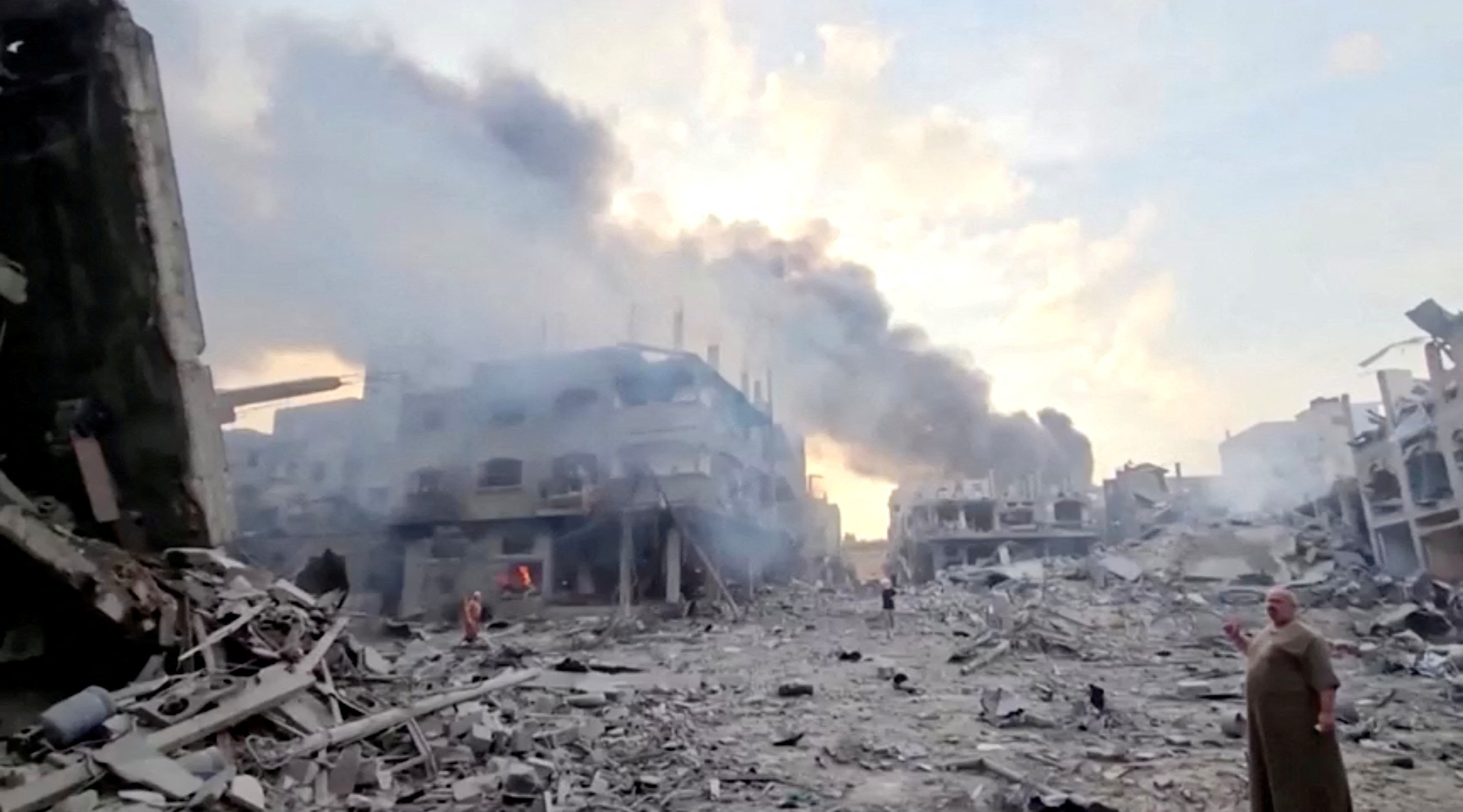Twenty trucks were unable to transport aid to Palestinian civilians in the besieged Gaza Strip on Tuesday, the United Nations said as US President Joe Biden dubbed humanitarian efforts to deliver help via a crossing from Egypt as “not fast enough.”
“We hope the materials can enter Gaza tomorrow,” said UN aid spokesperson Eri Kaneko. She did not say why the trucks had not been able to cross into Gaza from Egypt on Tuesday.
The United States is negotiating with Israel, Egypt and the United Nations to try and create a delivery mechanism to get aid into Gaza. They are wrangling over procedures for inspecting the aid and bombardments on the Gaza side of the border.
When asked by reporters at the White House on Tuesday whether aid was getting to Gaza as fast as needed, Biden said: “not fast enough.”
Rafah is the main crossing in and out of Gaza that does not border Israel. It has become the focus of efforts to deliver aid since Israel imposed a “total siege” of the enclave in retaliation for an attack by Hamas militants on October 7.
Since limited aid deliveries began on Saturday, 54 trucks have crossed into Gaza carrying food, medicine and water, which U.N. Secretary-General Antonio Guterres described as “a drop of aid in an ocean of need.”
Senior UN aid official Lynn Hastings had earlier told the Security Council that 20 trucks were due to cross on Tuesday.
No fuel has been delivered. Israel is concerned about the possible diversion of fuel deliveries by Hamas. White House national security spokesman John Kirby on Tuesday described Israel’s concerns as legitimate.
“We still believe, just in general, that fuel needs to be able to get in to the people of Gaza,” he told reporters.
The United Nations has warned that its fuel reserves will run out within days. The UN agency providing aid to Palestinians in Gaza, UNRWA, warned on Tuesday that it would have to halt its operations on Wednesday night if there were no fuel deliveries.
“While we negotiate with the government of Israel as to how best to bring fuel into Gaza, we have 400,000 litres on trucks ready to go. This would provide fuel for approximately two to two and a half more days,” Hastings told the Security Council.







Click here to change your cookie preferences